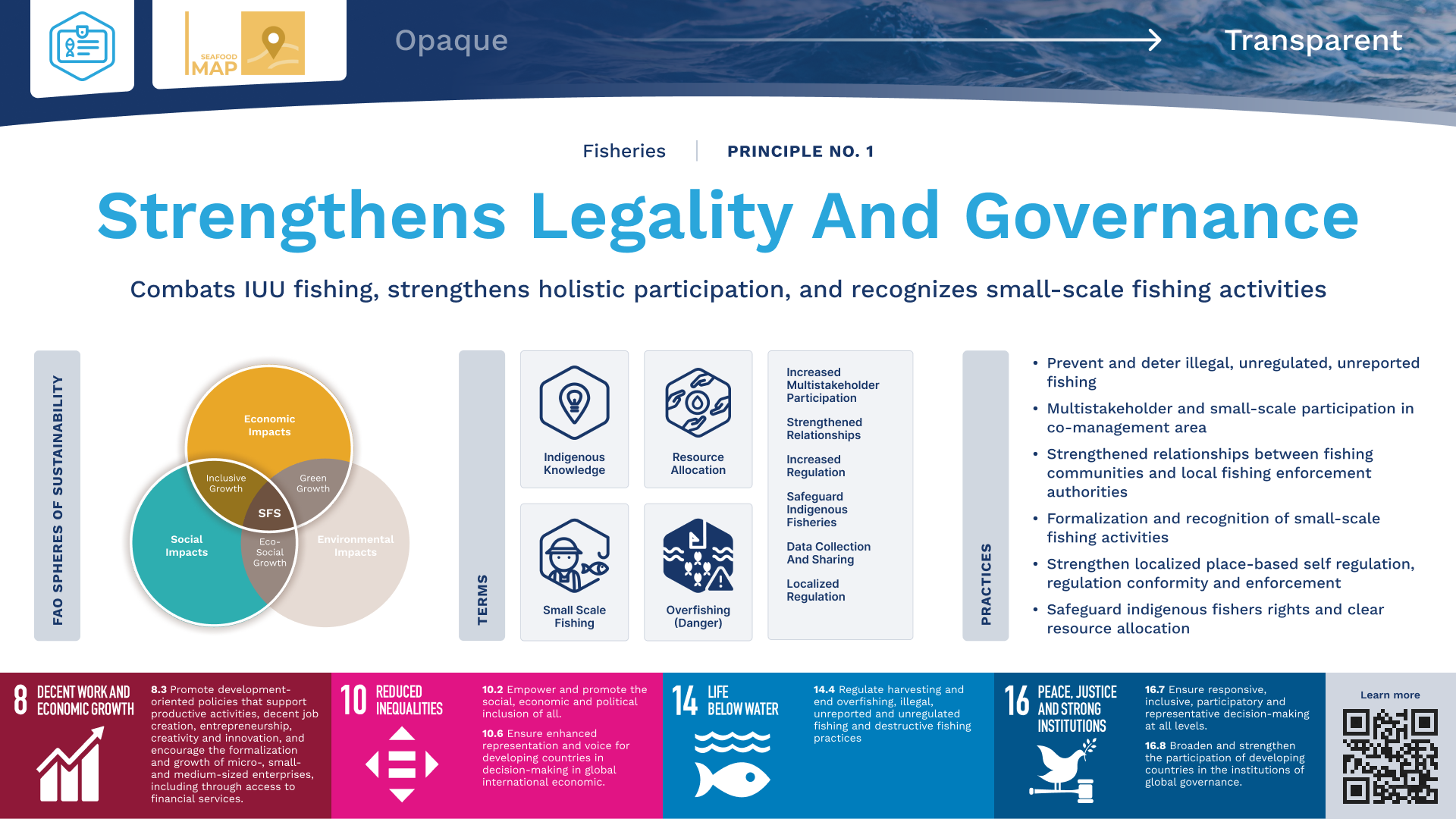
Fisheries – Principle 1 | Seafood MAP
Legality and conformity to regulations in management areas are priorities to ensure resources are utilized sustainably. Application and conformity to governance systems in management areas ensures fishing rights are used and recorded. To ensure legality and governance, illegal, unregulated and unreported fishing should be prevented and deterred. Fishers should obtain legal rights and maintain its usage with others in accordance with the agreed governance system. Compliance to local, national and international regulations should be managed together with other fishers and policy makers. Multi-stakeholder and small-scale fishers participation in co-management governance plays a crucial role in allocating resources and safeguarding indigenous fishers’ rights.

Irish Islands Marine Resource Organisation
Key Topics Explained
What does co-management mean and why is it important?
Fisheries co-management is typically an area-based adaptive management system which brings together the expertise of fishers, scientists and fishery managers, where all play an active role in decision-making and the management of the fishery. Each stakeholder brings their unique perspective and knowledge to the management decision-making table. This collaborative approach can result in improved outcomes for management of the fishery resource, environmental protection, economic dividends and the preservation of the unique language, culture and heritage of fishing communities.
Participants work together in a partnership approach to identify common goals and develop mutually agreed strategies for managing the fishery. This co-responsible process increases buy-in for all stakeholders and is more likely to lead to improvement in fishery management than a prescriptive, centralised, top-down mechanism. The traditional ecological knowledge and experience of fishers, the natural and social sciences along with adaptive management expertise complement one another, leading to more sustainable resource use and improved livelihoods and well-being of fishing communities.
Co-management is an ongoing iterative and collaborative process which needs to have an appropriate legal framework and resources to enable active participation of participants. Genuine co-management should include a devolution of both power and responsibility from central authorities to stakeholders who are equal partners in the management of the fishery. When fishers and policymakers work collectively trust, communications and relationships are built up between stakeholders. An enhanced sense of co-responsibility encourages responsible fishing practices, reduces conflict and raises awareness of the socioeconomic and ecological constraints in the fishery. Data quality is improved for management decision making and transparency in how decisions are made leads to much improved compliance, as each stakeholder has an increased stake in making the management of the fishery a success. In short, while not a panacea, co-management has the potential to represent an excellent delivery mechanism for sustainable low impact fisheries worldwide.

N/A